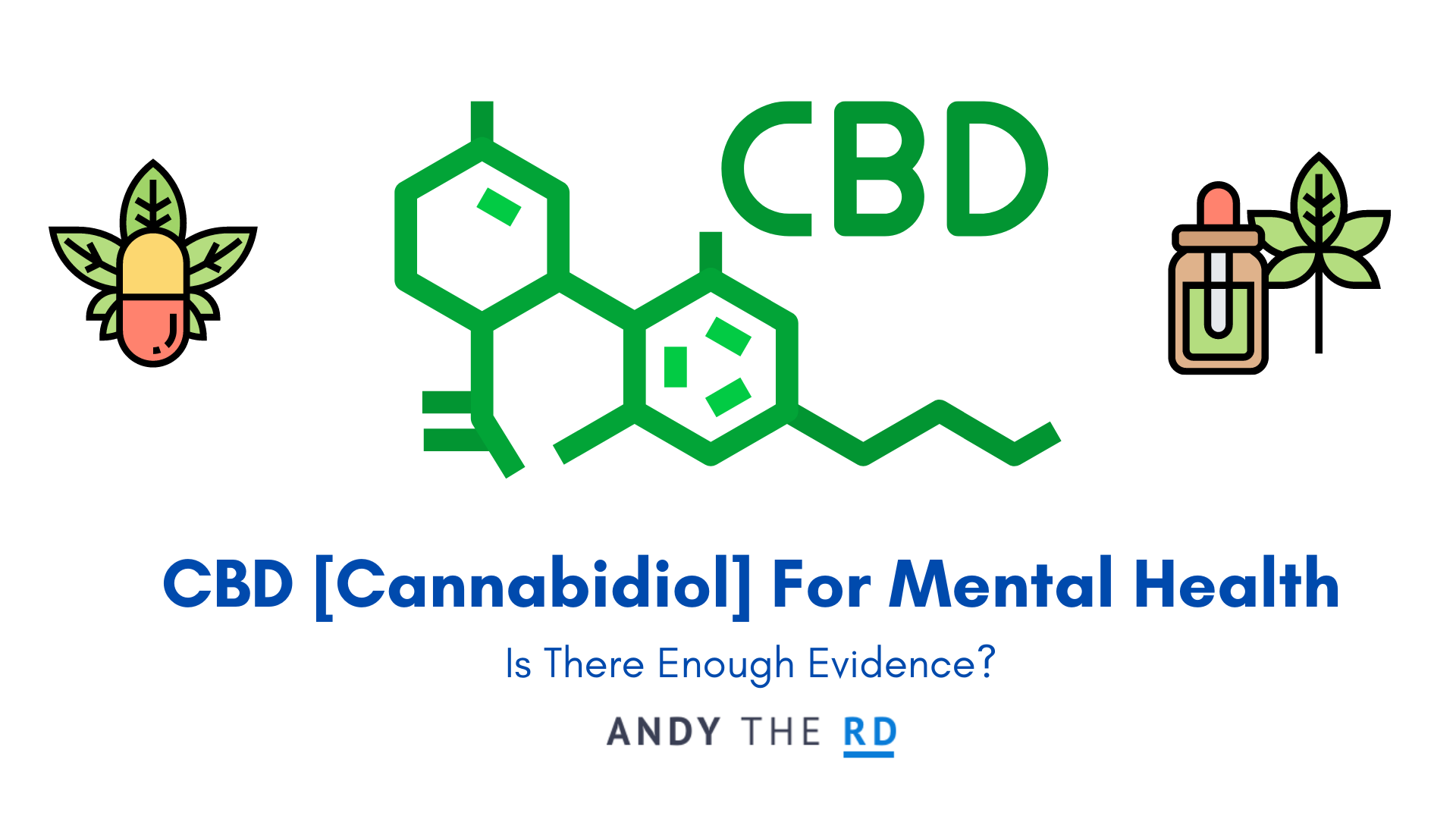Cannabidiol, often referred to as CBD, is one of the over 100 compounds that exist naturally in the Cannabis plant.
Often consumed in the form of an oil or capsule, CBD is generally contrasted to THC (the compound that gets you “high”) by being characterized as having minimal or no psychotropic effects.
My overwhelming sense is that, especially if you are here in Ontario where it is fully legal, that you or someone you know has tried or uses CBD in some form.
It’s popularity as a non-prescription compound with the potential to support mental health, combined with the extremely challenging context of the pandemic, has led me to re-visit this topic on my own 1.5 years after I wrote an article discussing the safety of CBD and its potential use for sleep & anxiety as part of a collaboration
Let’s take a look at what I found.
Part I – Why Do People Use CBD?
A 2021 survey out of the Journal Of Cannabis Research identified the top 4 self-reported reasons for CBD use in a UK-based sample to be;
- Self-perceived Anxiety
- Sleep Problems
- Stress
- General Health
This makes sense anecdotally, but does not necessarily speak to the available evidence as to CBD’s role in any of these domains.
The unfortunate reality as it relates to high quality scientific evidence around CBD is that randomized controlled trials (the gold standard) measuring its effects are few and far between.
More on this later, but I did indeed come across a very intriguing and recently published randomized controlled trial out of JAMA.
Part II – CBD And Burnout In Healthcare Workers
The study in question looked at the effects of 300 mg of daily CBD + standard burnout treatment vs standard burnout treatment alone in healthcare workers and found that the inclusion of CBD had a significant positive effect on reducing burnout (as measured by the Maslach Burnout Inventory which measures emotional exhaustion).
Although studies have largely suggested CBD is generally well-tolerated with few to no adverse effects, it should be noted that a small % ( 5 of 61) of participants in the CBD group experienced adverse effects related to elevated liver enzyme scores.
It’s reasonable to say that, despite the excitement around CBD, we still have more to learn about navigating the cost/benefit of use in the general population.
Part III – Recent Review Papers On CBD And Mental Health
CBD has garnered interest, in part, for having potentially anti-inflammatory effects at the cellular level.
From the mental health perspective this is an intriguing physiological characteristic as neuroinflammation (a fancy way to say inflammation in the brain cells) has become a target of increasing interest related to depression risk and severity.
Although the exact mechanism of CBD’s action is not fully understood, it may also be due in part to its interaction with the human endocannabinoid system which is thought to play a role in anxiety response.
And emerging but limited evidence suggests it just might work, let’s take a closer look at few recently published review papers on CBD use for anxiety-relief purposes.
Journal Of The American Pharmacists Association 2020
“CBD has a promising role as alternative therapy in the management of anxiety disorders. However, more studies with standardized approaches to dosing and clinical outcome measurements are needed to determine the appropriate dosing strategy for CBD and its place in therapy.”
The paper cited above looked at numerous studies involving the acute administration of CBD in doses ranging from 150-600 mg and determined some potential benefit in reducing anxiety symptoms in both social and generalized anxiety disorders.
“All of the presented results show that CBD plays a significant role in the regulation of anxiety- and depressive-related behaviors…[H]owever, it is necessary to develop additional, larger animal and human studies to definitively characterize the usefulness, safety, and efficacy of CBD for these psychiatric disorders.”
Final Thoughts
The easiest way to summarize the state of the evidence around CBD is say that the initial evidence, limited as it may be, is certainly promising – especially considering the adverse effects that may be associated with common anxiety treatment options.
More and better quality research will of course be required to substantiate this promise, but the fact that available data on CBD suggests it is well tolerated with low risk of negative effects is promising.
It is also not considered to be at risk of abuse or dependence, and I will you leave you with that until such a time I can re-visit this topic armed with better quality evidence to fuel the discussion.
Until then,
Andy De Santis RD MPH



